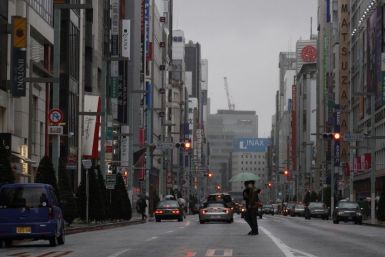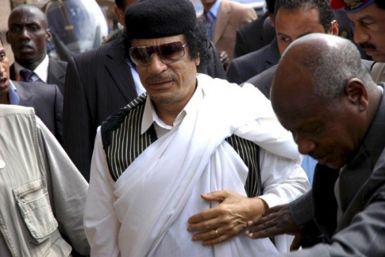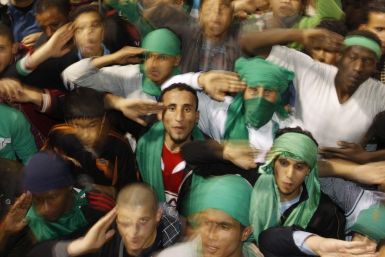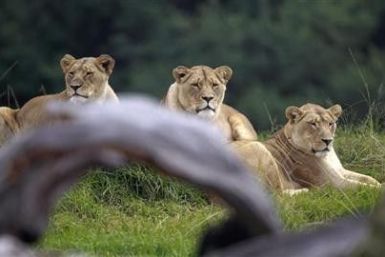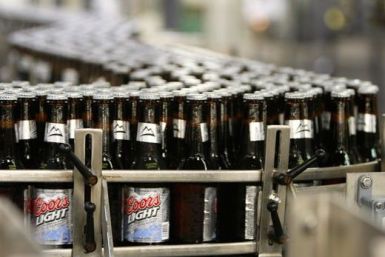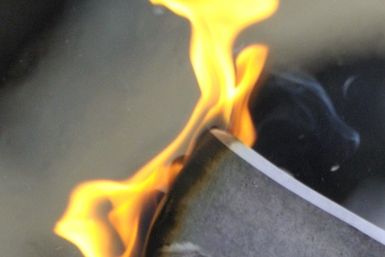Stock index futures pointed to a lower open on Wall Street on Tuesday, with futures for the S&P 500 down 0.3 percent, Dow Jones futures down 0.1 percent and Nasdaq 100 futures down 0.8 percent at 3:52 a.m. EDT.
Oil rose to 2-1/2-year highs on Monday, with Brent crude pushing above $120 a barrel on geopolitical risks to supply along with expectations of growing demand after last week's supportive U.S. economic data.
Brent crude rose over $119 a barrel and U.S. crude hit a 2-1/2-year high on Monday at more than $108 as unrest in the Middle East and North Africa triggered concern that supplies could be dented while economic growth bolsters demand.
Africa's largest telephone group Telkom is selling part of its loss-making Multi-Links operation in Nigeria for $52 million to Visafone Communications, sending its shares higher.
The nuclear emergency in Japan has led more than two dozen countries to either shut down their embassies in Tokyo or to relocate further south in the country, according to the Foreign Ministry.
Some prominent African leaders have expressed their condemnation of western air strikes on Libya.
The trading pattern of the prices of stocks and crude oil looks worryingly like it did just before the last recession.
OPEC is in consultations regarding a potential boost in oil output but hasn't decided whether to approve one, Kuwait's Oil Minister said on Tuesday.
Members of oil cartel OPEC are joining Saudi Arabia in raising output to cool soaring prices and allay fears of a supply crunch in the West, the Financial Times newspaper reported on Tuesday.
There are no good outcomes, only bad, really bad, and catastrophic. Take your pick. Could gas prices drop below $3.00 per gallon if the world sinks back into recession? Yes. But it would only be momentary. The easy to access supply is dwindling. The medium and long term direction of gas at the pump is up. There is nothing that can be done in the next five years to prevent significantly higher oil prices.
For most outsiders, Libya means just two things: oil and Moammar Gaddafi. But Libya is much more than that.
When crude prices fall, oil companies tend to pass on the reductions -- albeit grudgingly -- to motorists. In most of Africa, the same cannot be said of interest rates.
Three people were killed and 21 injured by an explosive device thrown from a car at an election rally near Nigeria's capital Abuja on Thursday, the latest act of political violence ahead of nationwide polls next month.
The Nigerian naira weakened further against the U.S. dollar on the interbank market on Wednesday as strong demand for the greenback persisted in the face of static supply, traders said.
Nigeria's state oil company had the poorest transparency record of 44 national and international energy companies evaluated in a report published by international watchdogs this week.
Muammar Gaddafi launched a land and air offensive to retake territory in Libya's east at dawn on Wednesday, sparking a rebel call for foreign air strikes against African mercenaries they said were helping him cling to power.
OPEC output fell in February from a two-year high the previous month as the uprising in Libya curbed supplies from Africa's third-largest producer, even as Saudi Arabia pumped more, a Reuters survey showed on Tuesday.
Boosted by the soccer World Cup, South Africa saw a record 15.1 percent increase in tourist arrivals in 2010 although the total of more than 8 million was not an all time-high, the tourism minister said on Tuesday.
Brewer SABMiller is to spend over $100 million to build a new brewery in Africa's second largest beer market Nigeria to take on the country's brewing heavyweights Heineken and Diageo.
Nigeria's state asset management company said on Monday it was set to start the second round of non-performing loan purchases from the banking sector and was on track to soak up all bad credit by the end of next month.
A Illinoise man was in disbelief after learning that he invested two and a half years of his life as well as $200,000 on a fake online girlfriend.
Amidst reports of thousands of deaths in Libya as a result of a brutal crackdown against protesters, the United Nations (UN) Human Rights Council is meeting in a special session in Geneva, Switzerland today to discuss possible sanctions against Moammar Gaddafi’s embattled government.






